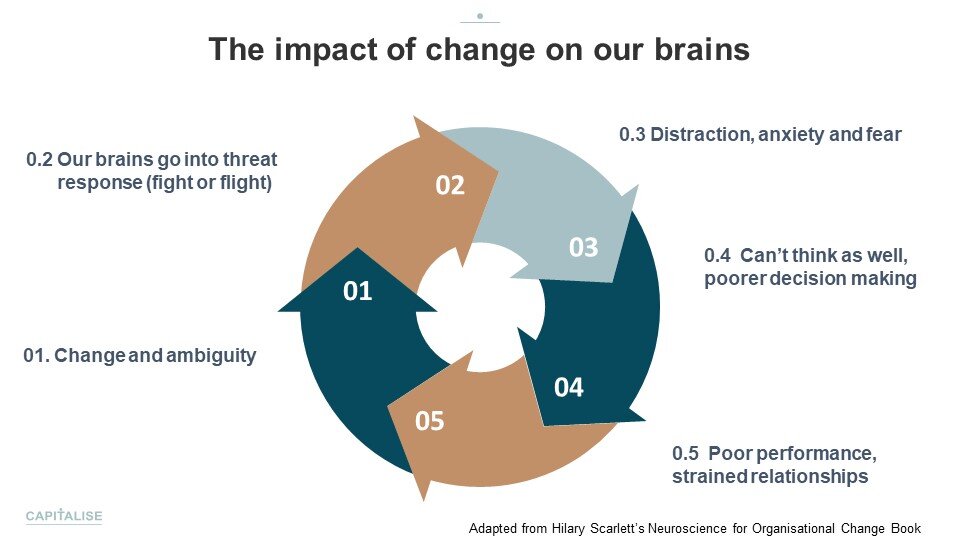As this uncertain time continues, the buzz of anxiety and stress continues to reverberate around us. Since the UK’s government’s strong message to ask people to go back to the office a few days ago, it’s probable that anxiety levels have heightened for a lot of people based in the UK,
An insightful white paper ‘Understanding Candidate Motivations In The Face of Covid-19’ finds that although 83% of the one thousand people polled said that returning to a working normality will improve their state of mind, 48% said there was fear around taking public transport and sharing the workplace with colleagues. As this White Paper quite rightly points out, ”we shouldn’t underestimate the emotional and mental pressure that people have been under over the last few months. A simple return to the workplace is not so simple”.
Depending on the situation we find ourselves in, the levels can be higher or lower on a given day, week or month. It’s important for us to manage our stress and help others to manage theirs, as prolonged bouts of stress are detrimental to our health.
Luckily we have the ability to manage it, primarily by:
Understanding how our brain ticks and why things are how they are
and by
Using tools and techniques to manage our stress levels (see below to access our guide to managing stress)
Understanding how the brain ticks
So in layman’s terms, the brain hates not knowing what the future holds. It primarily wants to make sense of the world, and in times like these, it can’t, so it jumps into threat response and from there, a cycle occurs.
The first area to be impacted by this and the associated stress hormones is the hippocampus - the area that looks after our learning and memory. This can put in danger our ability to make and recall memories. Our ability to learn is also negatively impacted too, so if you’ve learnt something new recently and felt more challenged than anticipated, now you know why.
The other area of the brain that’s impacted is the prefrontal cortex. This is because the blood flows away from this part of the brain in order to get us ready for ‘fight or flight’ mode. Our thinking then becomes impaired, we have less control over our emotions and we can see the environment around us as much more hostile than it actually is.
Another aspect to be aware of is the amygdala (fear and anxiety) which is activated around perceived dangerous situations to help us react to potential dangerous situations.
The other thing to be aware of is if we are constantly stressed, the amygdala can become over-sensitised which means our anxiety and fear levels become more easily triggered.
So in a nutshell, stress depletes our self-control including our ability to control our emotions, and as you can see from the image above you can now understand how this can ultimately lead to poorer performance and strained relationships.
Prolonged stress also leads to a negative impact on our immune system and this is where workplace burnout can kick in and is the big one to keep at bay. It’s now so prevalent the World Health Organisation recognised it as an international disease in 2019 and defined it as three dimensional:
feelings of energy depletion or exhausting
increased mental distance from one’s job
or feelings of negativism or cynicism; and reduced professional efficacy.
RECOGNISE ANY OF THESE?
If you do, don’t despair as there are ways of managing stress to avoid prolonged stress and eventual burnout.
Some tools and techniques to manage your stress
Remember that we aren’t at our best when we are at our most stressed. We are more emotional, less creative and focused.
Manage the balance between being empathetic and getting too caught up in other people’s emotions.
Be aware of things that trigger you. Give yourself space and time to respond, instead of reacting in the heat of the moment.
Reframe and reinterpret events so you can perceive them more positively
Activate yours and others reward network by thinking about and acknowledging past achievements.
Use Appreciative Enquiry as a technique to focus on the positive and practical.
Focus on distancing yourself and others from a painful situation and analyse why it happened.
Give yourself space and time away from your heavy workload to re-energise and allow for creativity to spark.
Be self-aware when you are being overly emotional. Analyse and decide what’s the root cause, and then put an action plan in place to change.
Manage your, and if you’re a leader, your team members’ workload – being overloaded with work is still the highest contributor to stress in the workplace (https://isma.org.uk/facts-about-stress)
Do daily mind and body exercises – even if they are short and sharp, they’ll make a difference.
There are many more practical, everyday tips you can bring into play. I’ve put a 30 Ways To Manage Your Stress guide together which include links to apps and surveys. I’d love you to take advantage and share it with others who may benefit. Download it here and I hope it’s of use.

